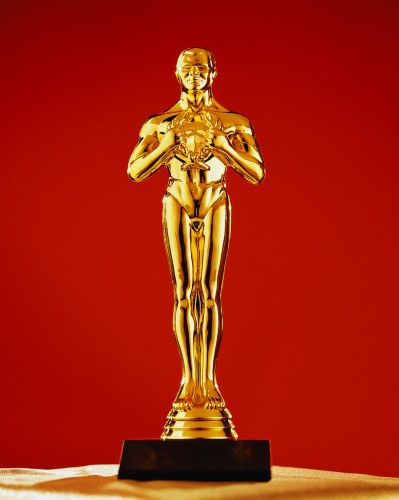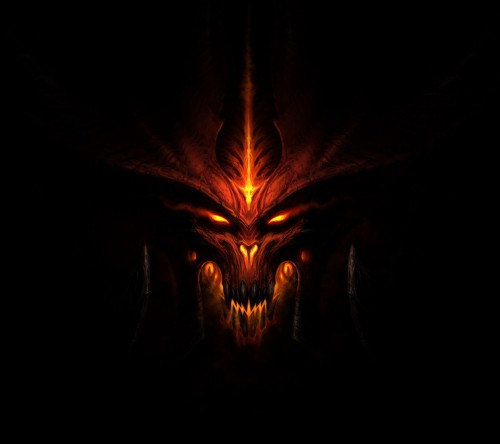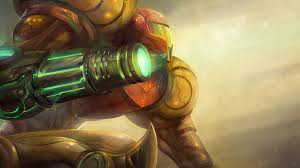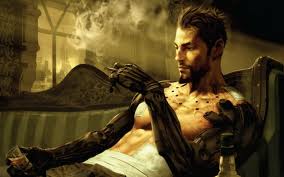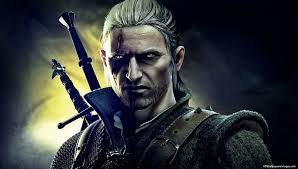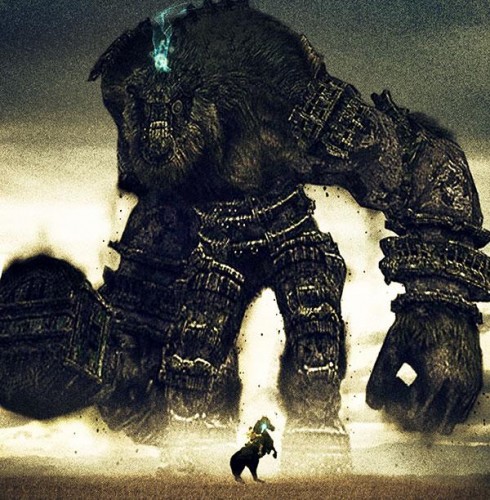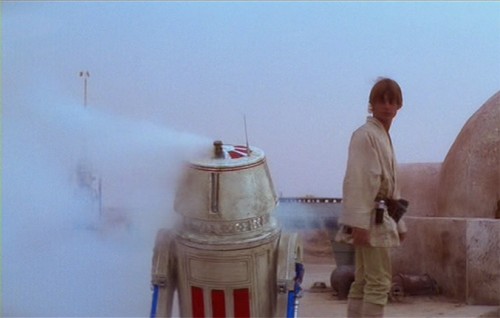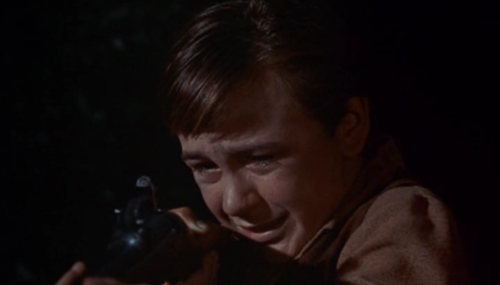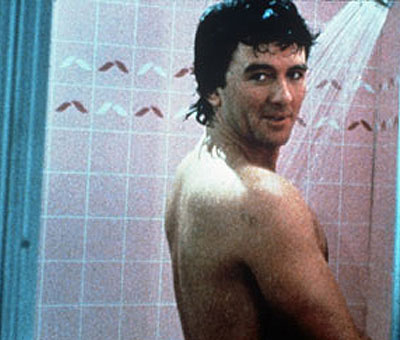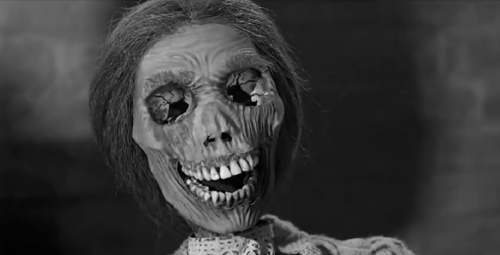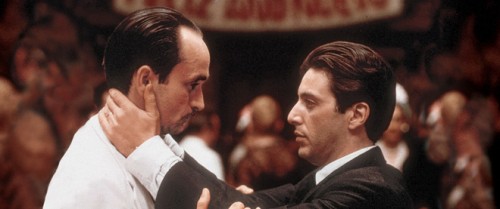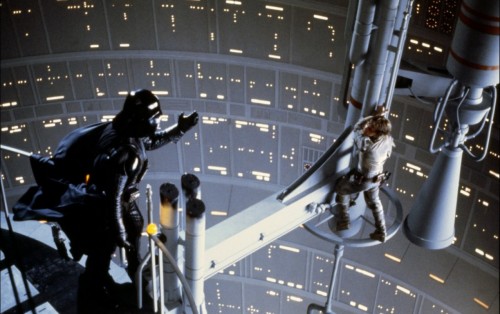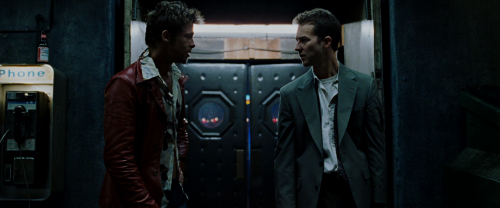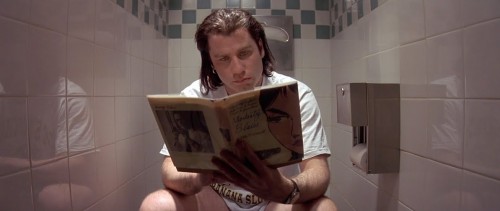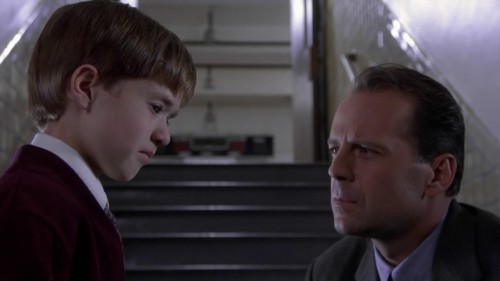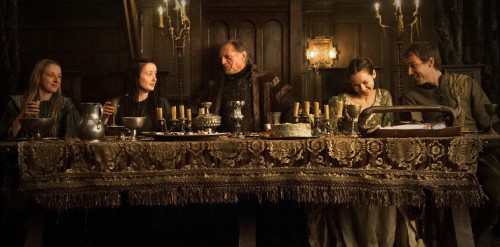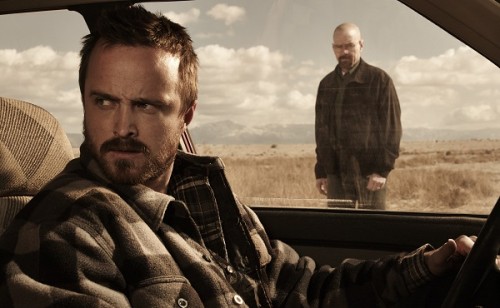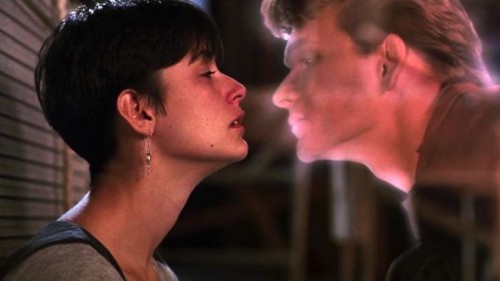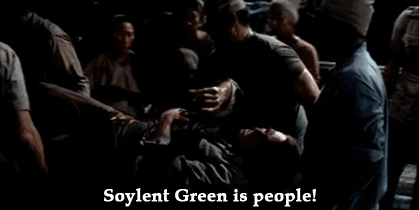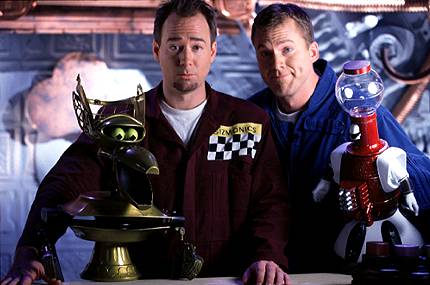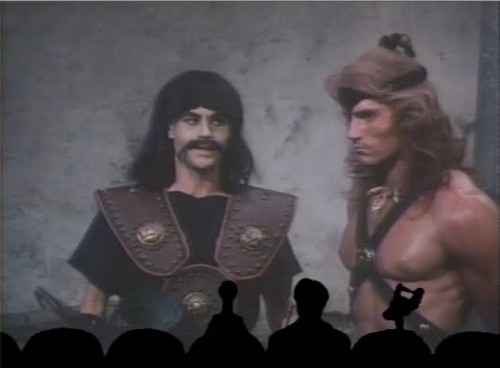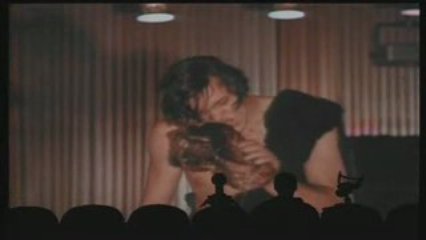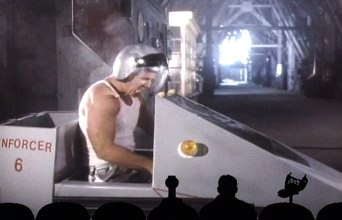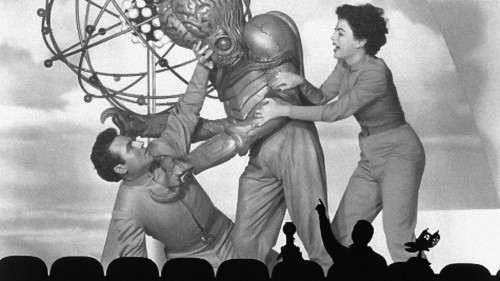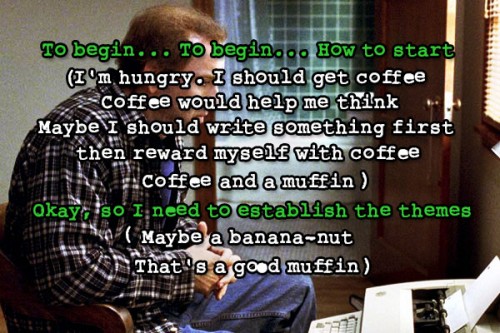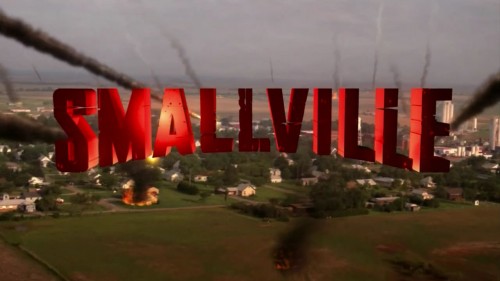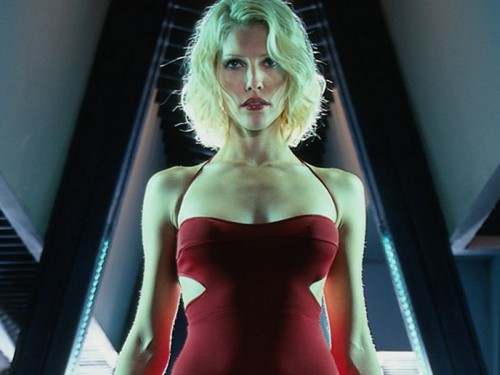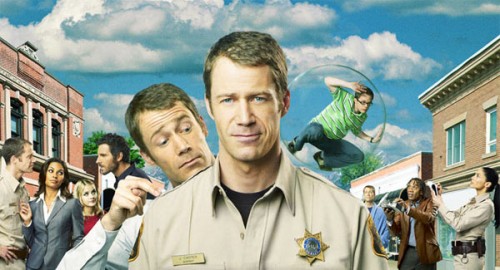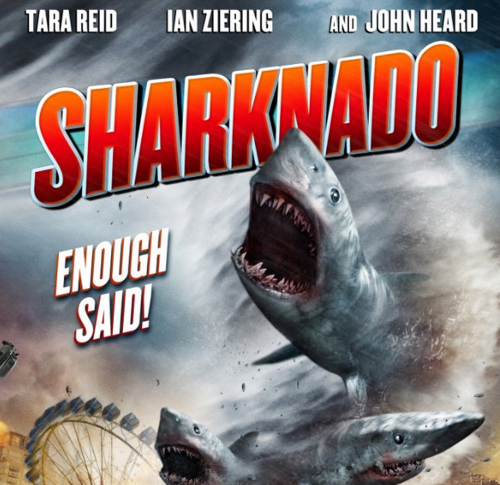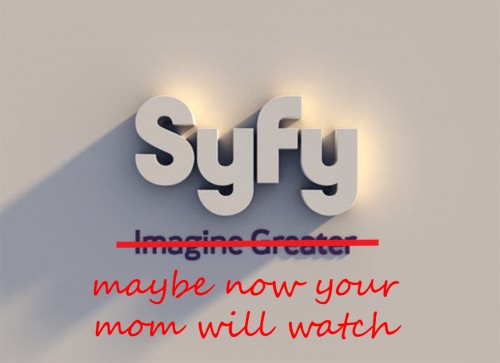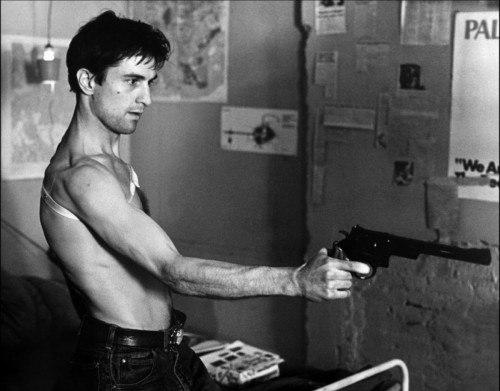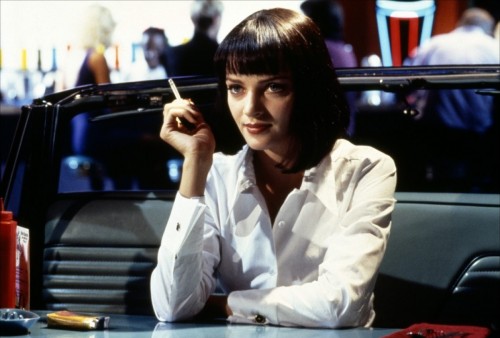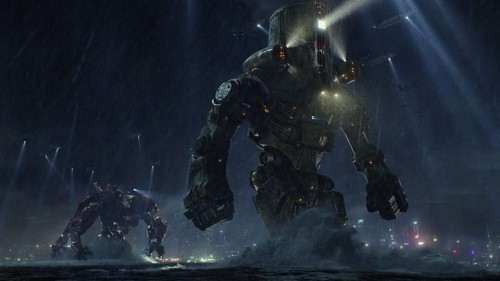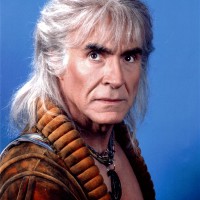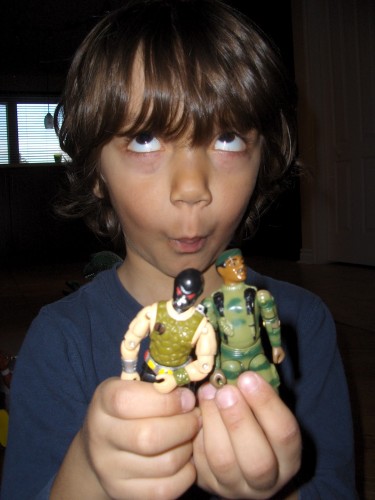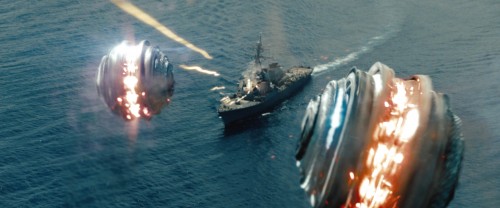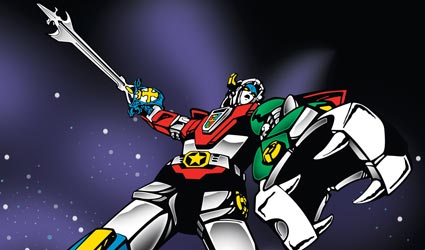I used to love the Oscars. Some of my favorite memories of my life in Los Angeles involves getting together with my friends, anywhere from six to ten to fifteen of them, grabbing junk food and booze, firing up the TiVo, ordering a pizza, filling out our ballots to gamble on the winners and losers, and watching the show designed to celebrate everyone in the room’s favorite art form. We’d have a good time bullshitting, laughing at the good jokes, tearing apart the bad ones, arguing over who deserved to win what, getting real competitive over the stupid pool, and getting hammered enough that by the next morning we had already forgotten who won Best Picture.
That group of friends, though, is now scattered to the winds. Those get-togethers, at least at that scale, are a thing of the past. And every year I have enjoyed the ceremony and the show less and less. This has little to do with which films are honored. There have only been a few times when a particular film winning has elated me and a few more times when a particular film winning enraged me. In general, they pick fine films that are not always my favorites of that year, but are quality nonetheless. (With some exceptions, of course. <cough> Crash <cough> .)
My lack of enthusiasm about the Academy Awards has been created by, over the last 20 years of caring about film and chasing my Hollywood dreams, witnessing the cycle of sameness and lameness from which they seem incapable of escaping. It’s wearing thin. They do the same thing every year, make the same mistakes, and, on the rare occasion when they do something edgy, usually involving a “hip” host, a few people complain the next day and they immediately respond by at least three consecutive years of safe, uninspired hosts that offend absolutely no one because they are incapable of doing it if they tried.
Some of my friends still enjoy watching the Oscars and that’s great. I, less so. So, being a selfish, selfish, man, here is a quick list of the things I would change about them to make me like them better. Just me: a film lover, film expert, and filmmaker. Some of these things may only satisfy me, but I know some would be welcome by others as well. But I don’t care about them. This is all about me. What I’d change. For starters, I’d…
1. Dump the outdated and time-consuming “Best Song” category. This award is a remnant from the days when musicals were a viable genre and for some reason we’ve kept it going. There are two major problems with this category. Firstly, it is not about film. It is about music. And it’s often times not even about music in a film. So many of the nominated songs don’t even appear in their respective movies until the end credits. Most of the rock songs are ones not good enough to put on the respective band’s album. If they could find five songs a year that are actually used IN the movie, in a meaningful and artful way, then maybe I could see keeping it, but they never do. It’s usually two songs like that and three by famous musicians that you probably only heard if you’re one of those people who stays for the whole credits, like me.
Problem number two, of course, is that this category is a horrible time suck. Because the producers feel the need, every year, to have the nominated songs performed during the ceremony. With five songs, plus the actual giving of the award, you’re looking at maybe 20 minutes that could be cut from a 3 ½ hour show. Now, I don’t really care about the length of the show, but I’m a movie geek and I live on the West Coast. But for those in EST, that half hour is a big deal, especially since the awards are always on a school/work night.
Also, this makes “Best Song” the most important award of the night, proportionately. “Best Director” takes up maybe four minutes total, but “Best Song”? It’s 10% of the show! Seems like a lot of time wasted on something that really has nothing to do with making movies.
2. Speaking of wasting time, let’s cut the short film categories. I know this sounds harsh and rather un-filmmakery of me, but let’s be honest. No one cares about these awards except for the nominees and their loved ones. But this show is an entertainment, meant to celebrate the glamour and art of Hollywood, and, to use last night as an example, STEVE MARTIN received an honorary Oscar off-screen in a previous, untelevised ceremony while the winners of “Best Short Documentary” got to speak on TV. I know, I know. Let these folks have their moment. I get that and I understand. But, again, this show is supposed to be entertaining and I know very few people that don’t use those awards as an excuse to use the bathroom. We don’t have to cut them entirely, just lump them in with the technical awards, the ones they do earlier on that celebrate the stuff that they don’t want to bore you with on TV. That’s where they belong. Sorry.
3. Restrict the host to just… hosting. I like Ellen DeGeneres. I thought she did a pleasantly bland good job Sunday night, with a fairly decent ratio of hits to misses. Thought her opening monologue was good and safe, which is fine, and several of her interjections here and there were good for a laugh. My problem is with the sketches. Especially when we get into hours two and three. The costume changes. Going into the audience to get Meryl Streep to take a selfie or make Martin Scorsese eat pizza. It makes the show too much about the host and not about the films. And I just don’t find them funny. The pizza bit last night just made me feel uncomfortable and awkward. That far into the ceremony, sketches like that just make the whole thing seem unnecessarily longer. I want my host to have a monologue to greet us, then spend the rest of the night introducing presenters, throwing in jokes here and there to make us smile. But that’s it. I don’t give a flying fuck if they “broke Twitter” with their group photo.
4. Diversify. Apparently Oscar voters are 94% white, 76% men, with an average age of 63. And boy does it show. Both nominee Julie Delpy and my friend Bob Ray pointed this out in the last few days. Are those numbers representative of Hollywood in general? Yes, and it’s one of its great shames. And it’s nowhere more apparent than in an Oscar broadcast. It explains the same people being nominated year after year. I mean, Meryl Streep is a great actress but not every film she makes is worthy of recognition. They refuse to acknowledge the work of Andy Serkis in Lord of the Rings and Scarlet Johansson in Her as “acting”. They have one category reserved for “quirky” films, “Best Original Screenplay”. Nearly every year it is given to the year’s “weirdest” or “edgiest” film as a consolation prize, because there’s no way we’ll ever give Pulp Fiction or Lost in Translation or Her or Django Unchained or Eternal Sunshine “Best Picture.”
Two words sum up to me why the Academy needs a demographic overhaul:
Bette Midler.
I mean, what the fuck?
“Wind Beneath My Wings”?
Are you shitting me?
I’m sure some people loved it but it just showed me how out of touch these people are. You choose to honor the dead (including Phil Hoffman, who was not mentioned by anyone except for the In Memorium montage) by having her come out and sing a song that was corny as hell five minutes after it came out three hundred years ago?
Felt so lame to me. But just to me. Again, this list is all about me.
5. Drop the “Themes”. The last several years, each Oscar broadcast has chosen a theme. Last night’s theme was “Heroes”. Never mind the fact that 90% of Hollywood Films are about some sort of hero, therefore making the theme of the night “movies”, it is the reason we got three uninspired montage-tribute things that were just a bunch of shots of “heroes”. They had no narrative to them, no energy. They served no purpose other than for people to go “hey, I’ve seen that!”. I just thought they were horrible. I haven’t seen any of these “themes” really work, but this year’s was so boring and vague. Again, wasting time.
6. I know I mentioned this before but it bears repeating: Seven songs were performed and three short films were given awards, but the Lifetime Achievement awards, given to real Hollywood legends, have been pushed off the broadcast into the same purgatory as the tech awards. Wouldn’t you have rather heard Steve Martin talk than listen to Pink sing “Over the Rainbow”?
7. Have them earlier in the year. This may not be possible, but one of the bummers about the Oscars these days is that all of the major categories are decided well before the ceremony. Sunday night it felt like all four actors had already won and were just showing up to collect their trophies. There was absolutely no suspense last night until “Best Picture” and even that was only between two films. With the Globes and the Spirit awards and the countless critics’ awards, it has started to feel like the Academy awards are simply reactive. That the members vote based on what has already won other things. I think the inevitability of the awards this year was the key factor in me not being excited. They have to do something to bring in some suspense. Because there wasn’t one minute last night that I found to be compelling or surprising.
8. My last point is probably untenable and stupid but I couldn’t help thinking about it last night. I think the Oscar broadcast would be a whole lot better if it went…
Live to tape.
“Live to tape” is what shows like the “Tonight Show” and “Daily Show” do, which is record a show like it’s live, with commercial breaks and everything, but then air it later. Very little TV that look live is actually airing live.
What this does, in addition to not making the creators of these shows live like vampires, is give them the chance to make little tweaks. Ever notice on “The Daily Show” when there’s a weird cut in an interview? You notice it, it’s weird, but it means the conversation went long and they had to trim it down to get to their network mandated runtime.
But it gives them the chance to have the interview and, if it goes over, cut it down to the parts they think are most interesting.
In the age of Twitter and the internet, I don’t think this is a possibility, but I would love the Oscars to do the same. Go live to tape the afternoon of.
Think about it. Record the whole thing, including letting the damn winners give full speeches and not playing the less famous ones off in 30 seconds. Then, once it’s on tape, the producers can make decisions. “Okay. Spike Jonez’s speech went long so let’s cut the pizza bit. Oh, that montage didn’t go over to well. Let’s cut it.”
They could deliver a fat-free entertaining broadcast if they could have five hours to make some cuts. And they could get it down to 3 hours, easy.
Problem is, of course, that the winners would get out into the interwebs before the show ever aired and no one wants that. But, to be fair, for years the West Coast (where the Oscars are held) got the whole show on a tape delay every year so that it fell in primetime. It’s a recent development that it airs here live at 5:30. And we dealt with it. If you really, really care, there are ways to avoid knowing what happens.
I just think it would make a better show.
But it will never happen.
So those are some things that would make the Oscars more enjoyable for me. As much as I bitch, I still do love the Oscars. I will watch them next year and the year after that. But I am consistently disappointed by their resistance to change. One can mark it up as “tradition”, I suppose, but to me it’s just stale.
Signing off,
your resident grumpy old man,
chad






